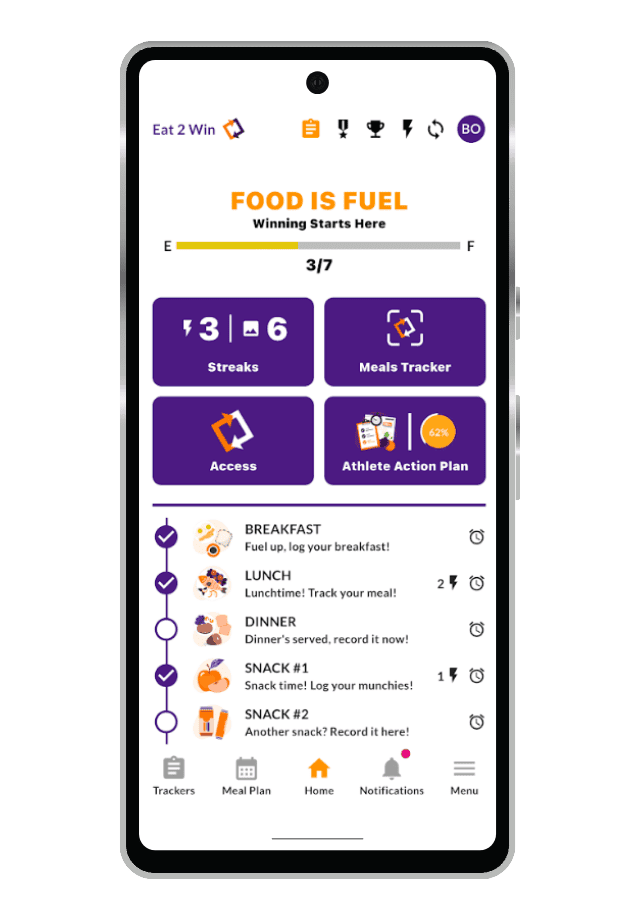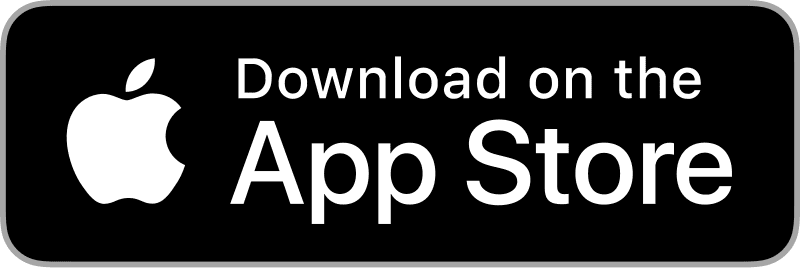Next Level Podcast with Host Tavis Piattoly, MS, RD, LD
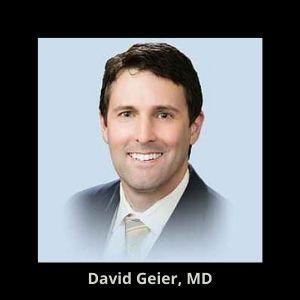
David Geier, MD
Dr. Geier is an orthopedic surgeon and sports medicine specialist in Charleston, South Carolina. David received a Bachelor of Arts degree in Economics from Wake Forest University.
In this podcast, Dr. Geier will discuss the role nutrition has in injury recovery and how the food you eat may help you return to play faster.
Dr. Geier is an orthopedic surgeon and sports medicine specialist in Charleston, South Carolina. David received a Bachelor of Arts degree in Economics from Wake Forest University. After completing medical school at the Medical University of South Carolina, he completed an orthopedic surgery residency at the world-famous Campbell Clinic in Memphis, Tennessee. He completed a sports medicine fellowship at Washington University in St. Louis, where he served as team physician at Washington University in St. Louis and assisted in the orthopedic care of the St. Louis Cardinals and St. Louis Rams. He returned to Charleston in 2005 and created the MUSC Sports Medicine program where he served as the Director of that program from 2005 until June 2013. He has served as the Head Team Physician for the Charleston Battery soccer team and Chief Tournament Physician for the Family Circle Cup women’s professional tennis tournament. He has also served as orthopedic consultant for professional and elite sports teams, including the United States Women’s Soccer team and the Eagles USA Rugby National team. He also serves as the head team physician for many area high schools and is the head physician for many recreational sports teams and leagues.
In this podcast you will learn:
- The type of work he does as a physician
- Why he wanted to start a podcast
- The most common types of injuries he sees in his practice
- In which sports does he see the most injuries
- How does someone’s diet play a role in injury recovery
- What type of foods which promote the healing of an injury
- The type of foods that may slow down the healing process that could prevent the athlete from getting back on the field when expected
- The type of supplements that may be beneficial for the injured athlete
- If there are any supplements being marketed to treat injuries that don’t work
- His thoughts on athletes turning to Steroids to heal injuries and if this is effective and are there any concerns with causing more damage in the long term
Podcast Transcript
2:28 What type of work Dr. Geier does as a physician
- Dr. Geier is an orthopedic surgeon, handling mainly the musculoskeletal injuries (joint, bone, muscle, tendon, ligaments). He works with a variety of athletes, ranging from youth sports to weekend warriors to professional athletes.
- While there are many health benefits for sports and exercise, injuries do occur, and Dr. Geier works to treat and prevent those injuries.
3:38 Why he wanted to start a podcast
- Dr. Geier started his podcast because he thought it was a great way to get information out there, in addition to blogs and social media.
- Outside of physicians, nutrition, physical therapy, and sports medicine, there's a thirst for health information, and more than 70% of people turn to the internet first for health information.
- Dr. Geier feels that he is good at explaining injuries to patients in the office and the surgeries and the treatments and ways to prevent these injuries but wanted to take it one step further and to try to reach a much larger audience.
- In addition, it has been great for connecting with people all over the world and has made him a better doctor and surgeon.
5:22 The most common types of injuries he sees in his practice
- 90% of Dr. Geier’s surgeries are either knee surgeries or shoulder surgeries, as they are the most common to need surgery.
- Dr. Geier noted that people fear coming to him or any other sports medicine orthopedic surgeon because they don’t want to hear that they’re going to need surgery or be shut down from sports. However, 90% of the injuries that he sees don't need surgery. So while knee and shoulder surgeries are the most common, most of what he sees are overuse that you back somebody off for a couple of days or you do a little bit of therapy or you cross train and you can get them back without needing surgery.
6:48 In which sports does he see the most injuries
- Geographically in Charleston, football is huge, and with that being a traumatic sport Dr. Geier sees a lot of those and statistically that's the most common organized sport that causes injuries nationwide.
- Also being a city where there’s warm weather year round, soccer and tennis are also of concern.
- Charleston is also an active community, so while it's not necessarily a sport per say, Dr. Geier sees jogging, running type injuries, cycling injuries, and injuries from people training for triathlons. There is a wide variety, but specifically for organized sports, football and soccer and then the weekend warriors are most common.
7:52 How does someone’s diet play a role in injury recovery
- Something that Dr. Geier sees all the time in the high school kids and the adult weekend warriors, is when they get hurt and they can't play for a little while, they stop trying to be healthy. All of a sudden, they're eating junk food and they're not doing the nutritional things that they usually do during the course of the season. So as they're recovering from injury and getting into the return to play phase that you have to get back into the sports, the process gets delayed if they haven't been working hard on optimizing their nutrition.
10:17 What type of foods which promote the healing of an injury
- Dr. Geier noted that you don't want people to not eat and cut way back on their intake from fear of gaining weight. If the individual was eating a good, balanced diet before, he would indicate that they stick with that.
- In terms of recovering from training and building muscle back after a strong workout, protein is important. Protein is equally as important in healing. You may not need to drastically change your diet, but rather ensure that you’re getting enough protein.
- Lastly, anti-inflammatory foods, the foods with antioxidants such as leafy greens, strawberries, and blueberries, and the omega-3 fatty acids found in fish oil, peanut butter, almond butter. All of those could potentially be good in those first weeks and maybe month or two after an injury and after a surgery.
12:50 The type of foods that may slow down the healing process that could prevent the athlete from getting back on the field when expected
- The biggest culprit seen are people starting to eat a lot of fast food for maybe convenience and potentially a depression side to it too. There is value for protein both for training and after injury, carbohydrates, and healthy fats, but the saturated fats are not helpful especially if they weren't eating that before. If their diet really goes south, that's where you potentially would get a problem.
14:06 The type of supplements that may be beneficial for the injured athlete
- Although we are still a long way to go to be able to that any of these are going to help everybody, there is some evidence behind glucosamine and chondroitin. These have been receiving attention regarding arthritis prevention, but it hasn’t really panned out very well for that purpose.
- What we do seem to see in the literature is that it may have an anti-inflammatory role, so it may not prevent any structural damage that's already there, but it might decrease pain as during training. This isn’t necessarily something that everyone has to do because there's so many variables in the literature, but it is a good example of something that has a very little downside other than the cost.
16:00 If there are any supplements being marketed to treat injuries that don’t work
- What Dr. Geier often sees is that high school kids and and the adult weekend warriors are going to stores and don’t really know what they’re taking.
- Dr. Geier is a big advocate of researching products and seeing what they are, making sure that it's safe, making sure that they don’t interact with medications you may be taking.
- One suggestion he has is to read the warning label and know how much you’re taking. Most supplements are relatively safe if you take the right doses. Supplements are not meant to be taken in handfuls or in superhuman doses.
18:11 His thoughts on athletes turning to Steroids to heal injuries and if this is effective and are there any concerns with causing more damage in the long term
- When it comes to healing and getting the tissue to become normal again, the process would be slowed by a steroid and an anabolic steroid. An anabolic steroid is anti-inflammatory, like ibuprofen and Naprosyn.
- On the recovery side, the reason that athletes probably do feel like they “recover faster” is that there's a lot of getting muscle strength and power back. However, it actually slows some of these healing structures, like ligaments and tendons, but they get their muscle strength back. While they feel better, it may actually put them at more risk, which is why steroids are not promoted. Dr. Geier notes that there is very little long term benefit of taking these after injuries.
20:24 Anything unique thats coming up to help athletes heal faster
- While Dr. Geier works to fix injuries in terms of repairing torn structures, he is not able to reverse the damage that’s been done, especially in terms of cartilage.
- Platelet rich plasma has been the first venture into cellular treatment. Additionally, stem cell treatments and genetic treatments are up and coming. These treatments would not only repair, but also try to make joints and structures normal again, making the damage like it never happened.
22:10 His thoughts on eggshell membrane as a possible treatment protocol
- There are currently some anecdotal studies or case series with the eggshell membrane, but what we really need are the randomized control studies.
- The problem with these studies in supplements is there's so many variables among the injuries in the athletes, making it hard to determine cause and effect.
- It was just a few years ago people started to talk about garlic, green tea extract, and chromium being helpful, and while we're not able to say definitively this is going to get you back on the field two weeks earlier, researching these is exciting.
24:38 Dr. Geier’s website and podcast information
- Drdavidgeier.com
- The Dr. David Geier Show on iTunes (podcast)

Eat 2 Win Nutrition App
Fuel the Champion Within
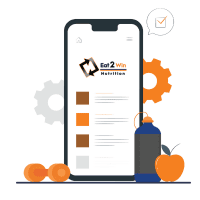
Trackers
Stay on target with cutting-edge trackers that monitor every step of your journey, ensuring you never miss a beat.
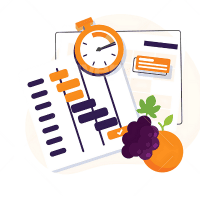
Meal Plan Guides
Simplify your nutrition with easy-to-follow, personalized meal plans that fuel your performance.
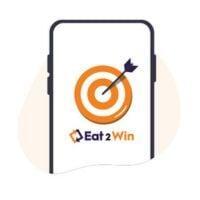
Gamification
Stay motivated and engaged by earning rewards and climbing leaderboards as you hit your fitness and nutrition goals.

Access a Sports Dietitian
Get expert guidance and personalized support from a certified Sports Dietitian whenever you need it.
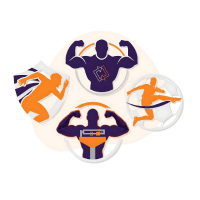
Personalized Programs
Unlock your full potential with personalized programs meticulously crafted to match your unique lifestyle and fitness aspirations.

